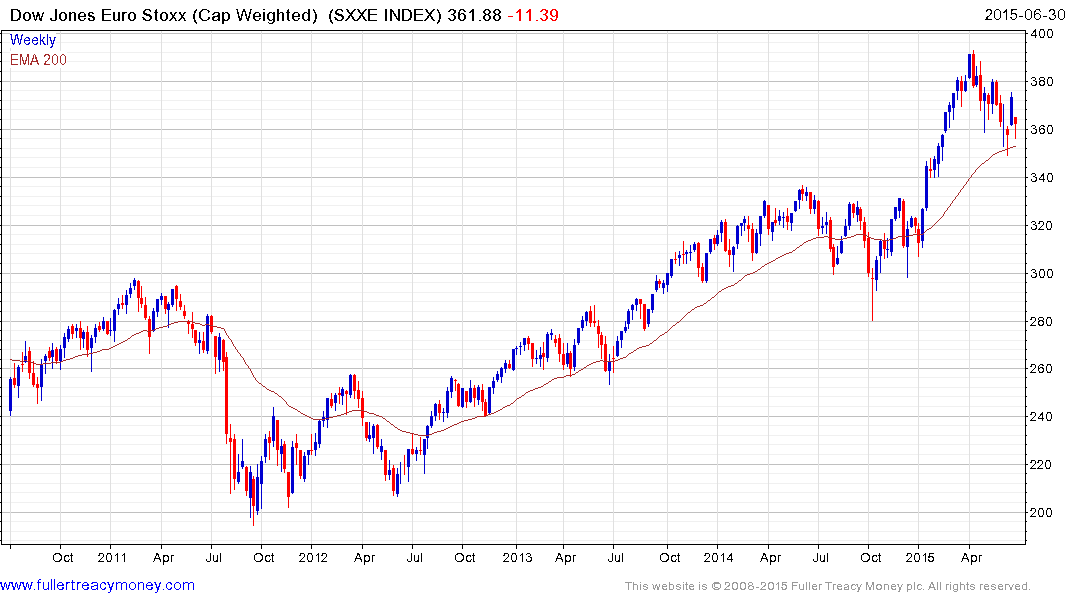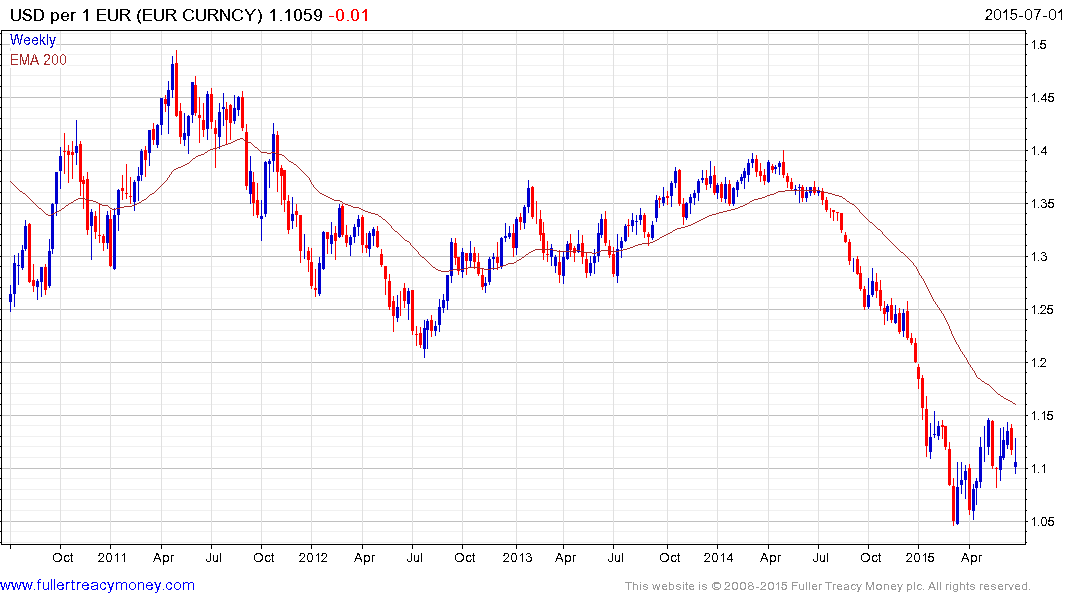Tsipras Tells Voters Rejecting Austerity Will Yield Better Deal
This article by Jenny Paris, Rebecca Christie and Theophilos Argitis for Bloomberg contains a useful calendar of Greece’s refinancing requirements that may be of interest to subscribers. Here is a section:
The creditor institutions still view the July 5 referendum as a potential barrier to agreement, according to a European Union official. Other officials have said Tsipras needs to call for a “yes” vote or cancel the plebiscite altogether to regain euro-area support.
If Greece votes “yes,” it might be able to win approval for a third bailout package in the next few weeks. If there were a deal in principle, it’s possible Greece could get quick disbursement of 3.3 billion euros ($3.7 billion) from central-bank profits on bond purchases -- money that was set aside for the second bailout and then taken off the table on June 30.
If voters say “no,” the pressure on its banking system would ratchet up quickly, leaving Greece little choice but to consider printing its own money. That’s because Greek banks would be unable to meet ECB demands for the collateral needed to keep access to emergency liquidity, and the government would run out of cash to pay its bills and pay its workers.
Greece has a rich history and Alexis Tsipras might be well advised to reread Aesop’s fable of the boy who cried wolf. The schizophrenic manner in which he is conducting negotiations; first calling a referendum, then making an overture to accept many of the proposals the referendum is supposed to decide reflects the kind of vacillation that doesn’t exactly engender confidence.
Angela Merkel must be hoping that the referendum will be accepted so that Mr. Tsipras’s government will fall and a negotiating partner more amenable to negotiations will replace him, possibly under a unity government.
Oddschecker has the odds of Greece leaving the Euro this year at 1/5 in from 1/3 yesterday suggesting capital controls may be having an impact on public sentiment.

Yesterday was the end of the quarter with some book squaring reflected in the weakness of markets. European stock markets were firmer today with the Dow Jones Euro STOXX Index again bouncing from the region of the 200-day MA.

The Euro leapt higher on Monday, possibly on intervention by the ECB but has drifted lower over the last two days. With so much uncertainty ahead of Sunday’s referendum result the prospect of additional volatility is more likely than not.


